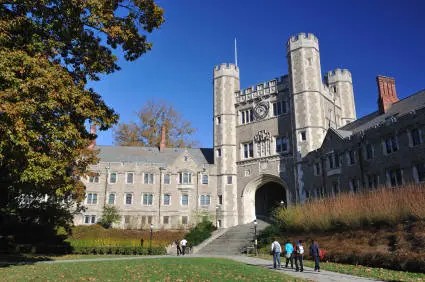NJCLASS Collections & Loan Forgiveness
- Offered by HESAA, NJCLASS student loans are state-backed loans.
- HESAA allows cancellation of NJCLASS loans on a limited basis.
- HESAA has broad powers to collect delinquent NJCLASS loans.
I have $47,000 in New Jersey private student loans. Are there any loan forgiveness programs available for me?
My private student loan (NJ Class) went into collection, but I got them to agree to a payment agreement and have since made 12 consecutive payment on time. I've been waiting for some kind of improvement to show up on my credit report, but so far the balance hasn't even changed, even though I've been paying more than just the monthly interest. Is there any way to get the loan out of collection entirely without paying the balance ($47k) or improve my situation?
Editor’s Note: An earlier version of this answer categorized NJCLASS loans as private loans incorrectly.
NJCLASS loans are backed by the state of New Jersey, and are offered by the New Jersey Higher Education Student Assistance Authority (HESAA). As such, NJCLASS loans are not federal nor private.
Student Loan Collections Basics
When a borrower defaults, or ceases to pay a federal student loan, the federal government reserves the right to administratively garnish your wages and seize your tax return. By administratively, this means the Dept. of Education does not need to ask a court for the right to take these actions — it can take these actions on its own authority.
Private student loans are handled differently. Regarding collections, private student loans are similar to unsecured debt. If you default on a private loan, the creditor or collection agency must sue you in civil court. If a judgment is won, the creditor or collection agency can ask to have wages garnished and/or liens placed against properties or financial accounts. The only thing that separates a private student loan from an unsecured debt is the fact that private student loans are not dischargeable in a bankruptcy filing, generally speaking.
NJCLASS Student Loan Collections
The New Jersey legislature gave HESAA broad administrative powers to collect delinquent NJCLASS student loans. These include:
- Expedited increase of interest rate
- Loss of State income tax refunds or State tax rebates
- Legal action
- Assessment of collection charges including attorney fees of up to 30 percent of the debt collected
- Loss of eligibility for other student aid
- Negative credit reports
- Administrative wage garnishment
- Offset of lottery prize winnings
- Suspension of New Jersey occupational and professional license (N.J.A.C. 9A:10-6.16)
In effect, HESAA has broader powers than Congress gave the Dept. of Education to collect delinquent federal loans.
You mentioned loan forgiveness. Because you have an NJCLASS loan, I will assume you reside in New Jersey. The New Jersey Higher Education Student Assistance Authority offers Loan Deferment and Forbearance Programs and loan cancellation for former students working as teachers, dentists, physicians, and people working in the social services field with public or non-profit social service agencies. Review the HESAA resource I mentioned to learn if you qualify for a loan forgiveness.
Credit Score
A bit about your credit score. As you discovered, your FICO score will suffer if you default on your student loan.
Federal law (US Code Title 15, §1681c) controls the behavior of credit reporting agencies (CRAs). The specific law is called the Fair Credit Reporting Act (FCRA). Under FCRA §605 (a) and (b), an account in collection will appear on a consumer’s credit report for up to 7½ years. To determine when an account will be removed by the CRAs (TransUnion, Equifax, and Experian and others), add 7 years to the date of first delinquency. The date of first delinquency is shown in credit reports. Subsequent activity, such as resolving the debt or one debt collector selling the debt to another collector, is irrelevant to the 7-year rule.
Some debts have a reporting period longer than 7 years, including:
- Tax liens: 10 years if unpaid, or 7 years from the payment date
- Bankruptcy: 10 years from the date of filing (15 U.S.C. §1681c)
- Perkins student loans: Until paid in full (20 U.S.C. §1087cc(c)(3))
- Direct and FFEL loans: 7 years from default or rehabilitation date (20 U.S.C. §1080a(f)(1) and 20 U.S.C. §1087e(a)(1))
- Judgments: 7 years or the debtor’s state statute of limitations on judgments, whichever is longer
The FCRA 7-year rule is separate from state statutes of limitations for debt issues. Just because a debt is removed from a credit report does not mean the statute of limitations has passed or that the debt is no longer collectible.
A student loan falling off a credit report will not cancel the debt. See the Bills.com resource FICO score to learn more about how credit scores are calculated.
I hope this information helps you Find. Learn & Save.
Best,
Bill
